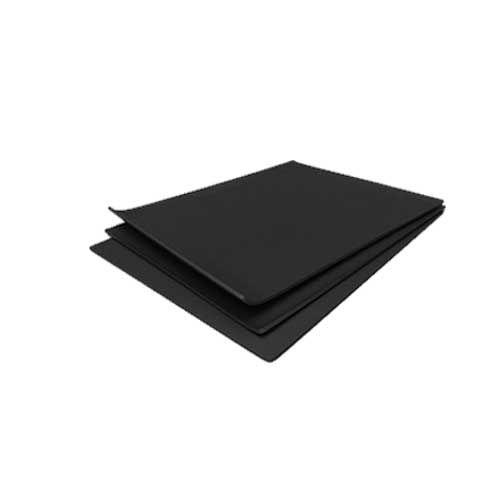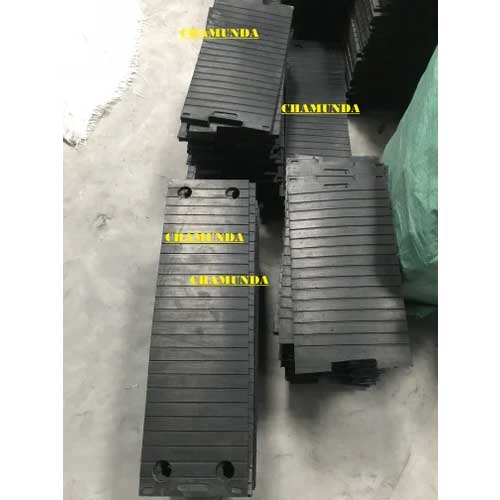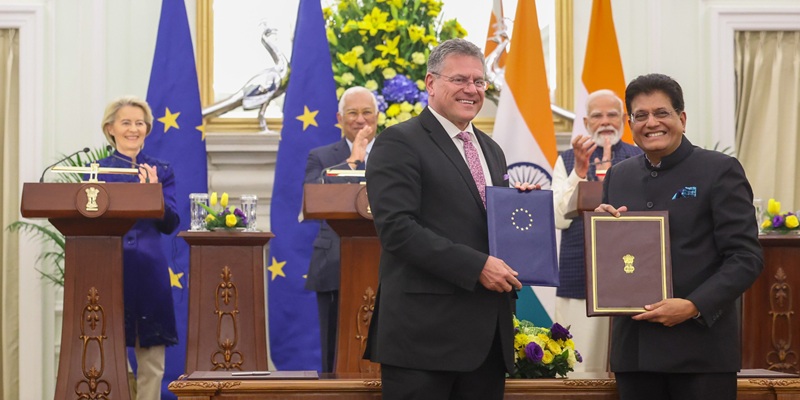Schedule a Call Back
Sustainable plastic manufacturing landscape: Pallav Doshi
 Articles
Articles- Feb 21,25

- Consumer awareness: Modern consumers are making informed choices, with growing preference for sustainable, high-quality products.
- Stringent regulatory norms: Governments worldwide are enacting laws to reduce plastic waste and encourage recycling, such as the European Union’s Single-Use
- Corporate responsibility: Businesses are adopting Environmental, Social, and Governance (ESG) frameworks, making sustainability a core component of their strategies.
- Limited availability of recycled materials: The supply chain for recycled materials in India remains fragmented. Ensuring a consistent and high-quality supply of post-consumer recycled (PCR) materials is a significant hurdle, requiring investment in collection, segregation, and recycling infrastructure.
- Customisation complexity: Catering to specific customer demands increases operational challenges, requiring significant innovation and agility.
- High transition costs: Adopting sustainable practices often involves significant capital expenditure. Investments in advanced machinery, renewable energy sources, and research and development (R&D) for eco-friendly materials can be prohibitive, particularly for small and medium enterprises (SMEs) that dominate the sector.
- Global compliance requirements: Indian manufacturers must meet stringent sustainability standards, such as the Global Recycled Standard (GRS) and the ISO certifications for environmental management. Achieving these certifications requires substantial financial and operational strategies.
- Limited market awareness in India: Limited domestic awareness and price sensitivity hinder the demand for sustainability-focused products in India.
- Embracing the circular economy: Adopting a circular economy minimises waste and reuses resources. Closed-loop systems allow manufacturers to recycle plastic waste into new products, reducing dependency on virgin materials. They showcase this by using post-consumer recycled (PCR) materials to balance sustainability and performance.
- Investing in renewable energy: The use of renewable energy in manufacturing processes is a critical step toward sustainability. Solar, wind, and biomass energy sources can reduce the industry’s carbon footprint while lowering long-term operational costs. Government subsidies and incentives under the Make in India initiative further support this transition.
- Developing innovative products: Sustainability-driven innovations create globally appealing products. Few Indian companies focus on items such as artificial plants, yoga mats, and home décor that meet environmental and aesthetic standards.
- Expanding into global markets: Sustainability enhances a brand’s appeal in international markets where eco-friendly products command premium pricing. Aligning with global certifications unlocks lucrative export opportunities for manufacturers.
- Collaborating with government initiatives: Programs such as the Production Linked Incentive (PLI) scheme provides financial incentives to manufacturers adopting sustainable practices.
- Strengthening recycling infrastructure: Investments in modern recycling facilities, coupled with public-private partnerships, can improve the availability and quality of recycled materials. Integrating technology for waste segregation and collection can streamline operations.
- Fostering industry collaboration: Collaboration between manufacturers, raw material suppliers, and industry bodies can drive innovation and scale sustainable practices. Platforms for knowledge sharing and joint R&D initiatives are essential.
- Enhancing consumer awareness: Educating consumers about the environmental benefits of sustainable plastic products can create demand in domestic markets. Awareness campaigns, labeling initiatives, and partnerships with retailers can accelerate this shift.
- Promoting skill development: Establishing training programs focused on sustainable manufacturing technologies can bridge the skill gap. Collaborations with academic institutions and industry associations can play a pivotal role in building a skilled workforce.
- Leveraging technology: Adopting Industry 4.0 technologies, such as IoT, AI, and data analytics, can optimise resource use, reduce waste, and enhance operational efficiency. Real-time monitoring systems can ensure compliance with quality and environmental standards.
Related Stories

Indian manufacturing sector: Negotiating its way in a less VUCA world
India’s manufacturing sector is evolving through policy support, technology adoption and sectoral growth, though challenges in R&D and skilling remain, writes Prof R Jayaraman, Head, Capstone Proj..
Read more
Manufacturing Strength Behind India’s Self-reliance and Global Positioning
India’s manufacturing sector is evolving from domestic self-reliance to global leadership, navigating a VUCA environment through strategic policy, capability building and infrastructure-led execut..
Read more
India’s Manufacturing Reset in an Uncertain World
Global manufacturing is being reshaped by volatility and disruption. This release outlines how India is strengthening depth, resilience and capability to emerge as a long-term manufacturing partner,..
Read moreRelated Products

Rubber Sheets Material
Talbros Sealing Material Pvt Ltd offers a wide range of rubber sheets materi Read more

Rail Rubber Pad
Chamunda Enterprise offers a wide range of rail rubber pad.

Insulation Polyester Film
TMA International Private Limited offers a wide range of insulation polyester film.














